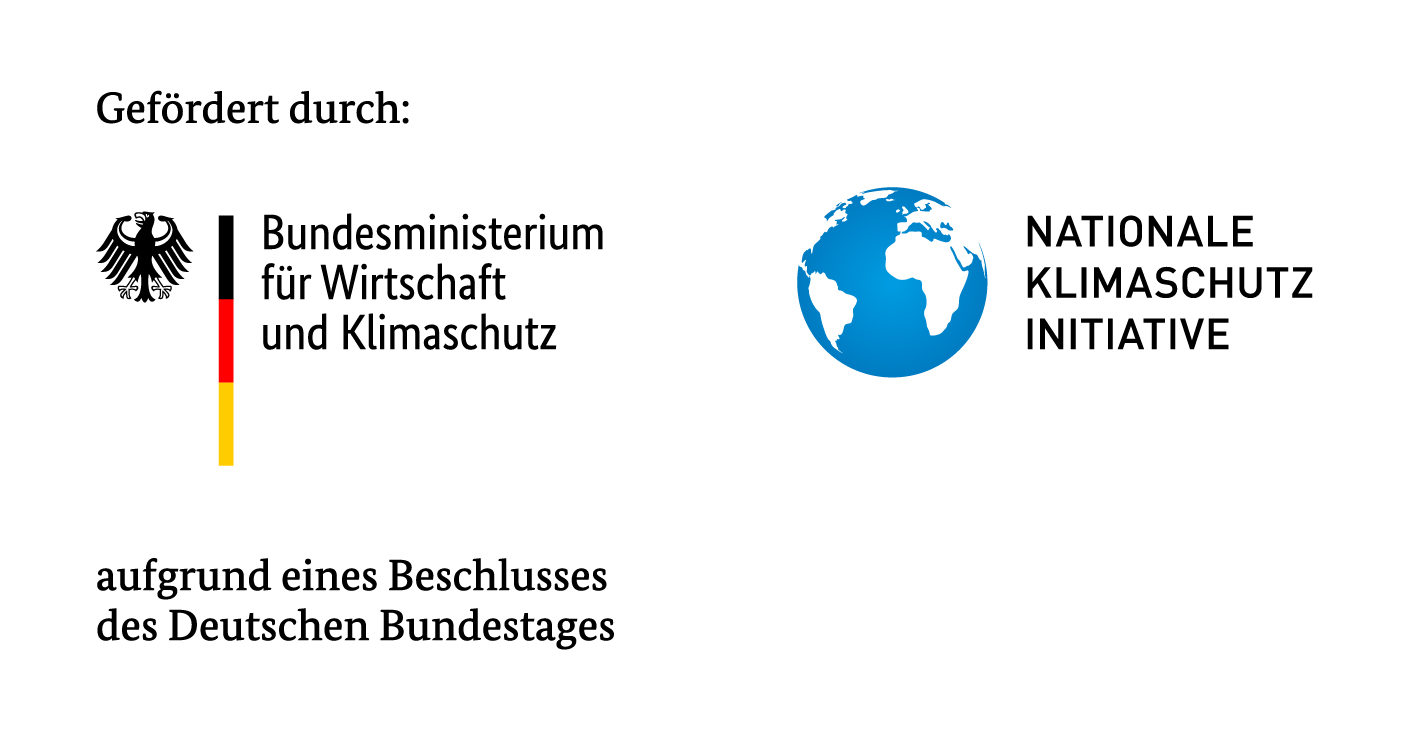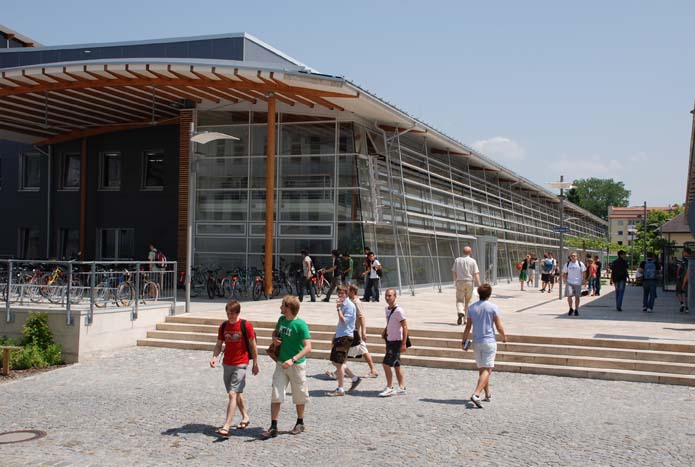KSK: Climate protection management Rosenheim Technical University of Applied Sciences - follow-up project
The follow-up project, funded by the Federal Ministry of Economics and Climate Protection, serves to initiate and coordinate the implementation of the most important measures from the climate protection concept, which was also funded by the BMWK.
Within the framework of the BMWK-funded project, the measures described in the climate protection concept for achieving the climate protection goals of the Rosenheim Technical University of Applied Sciences are to be implemented or initiated. The overarching goal is to make the university to achieve climate neutrality by 2040.
Project background
In a resolution dated 19.07.2022, the university management set the goal of climate neutrality for Rosenheim Technical University of Applied Sciences by 2040. By 2030, greenhouse gas (GHG) emissions are to be reduced by 65% compared to the 2019 balance sheet year. These targets relate to Scope 1 (direct emissions) and Scope 2 (indirect emissions) in accordance with the Greenhouse Gas Protocol.
With this target, Rosenheim Technical University of Applied Sciences is essentially following the goals of the Bavarian state government and is implementing the German government's climate neutrality target ahead of schedule. In achieving this goal, Rosenheim Technical University of Applied Sciences is guided by the principle of avoiding emissions, reducing emissions and offsetting unavoidable or reducible emissions.
Possible ways to achieve the savings targets are outlined in the climate protection concept of Rosenheim Technical University of Applied Sciences. Based on a GHG balance sheet for the Rosenheim, Mühldorf and Burghausen sites, technically and economically feasible savings potentials were and concrete short, medium and long-term measures to achieve the GHG reduction targets were formulated. In addition, scenarios were described, which consider the further development of GHG emissions with and without implementation of defined measures.
The catalog of measures includes,
- Conversion of the Rosenheim campus to district heating
- Refurbishment of existing buildings
- Expansion of the university's own PV systems
- Introduction of an energy management system
- Reduction of commuter traffic through the development of a mobility concept
- Initiation of climate adaptation measures (greening, unsealing, infiltration areas)
- Development of guidelines for the sustainable procurement, recycling and reuse of IT hardware and other goods
- Examination of the introduction of EMAS certification
Project objective
With the measures to be implemented as part of the follow-up project GHG savings of more than 450 t CO2-eq during the approval period and by 2030 a GHG saving of more than 1000 t CO2-eq are expected. Compared to the balance year 2019, this means that by 2030 in Scope 1 and 2 over 80% of GHG emissions can be saved. By consolidating the climate protection management and the development of a university-wide sustainability strategy, the implementation of the measures listed in the climate and other measures is to be continuously driven forward and the goal of a climate-neutral university by 2040 is to be achieved.
Project procedure
The decisive factor for the decision and implementation of climate protection measures at Rosenheim Technical University of Applied Sciences is networking and cooperation with those responsible and experts from various areas within and outside the university. The exchange takes place both in regional and supra-regional networks as well as via an university's internal climate council. This includes representatives from university management, science, facility management, building development and the Stupa.
At regular meetings, the Climate Advisory Board discusses measures, work packages are drawn up and decisions are made in discussions with the university management. By means of PDCA (Plan-Do-Check-Act) analysis is used to continuously review and, if necessary, adjust the work plans.
The coordination of the implementation of the measures as well as communication within and outside the university is the responsibility of the climate protection managers. The involvement of relevant stakeholders (students, employees, university administration, etc.) and effective public public communication of the activities ensure transparency and participation. This is important for the acceptance of the measures and the highest possible identification with the climate protection concept and the university-wide sustainability goals.
Innovation
As one of the first universities in Bavaria, Rosenheim Technical University of Applied Sciences already has a fully developed climate protection concept and is now in the implementation phase. The follow-up funding from the NKI offers the opportunity to identify potential savings and to support the the creation and implementation of concepts as well as climate and resource and resource-saving construction and renovation.
The active involvement of of students and employees is intended to ensure that climate protection and sustainability in teaching, research and operations are not only strategically anchored but also are also put into practice collectively.
Sub-project lead
Project staff
T +49 (0) 8031 / 805 - 2715 rosina.lohmeyer[at]th-rosenheim.de
T +49 (0) 8031 / 805 - 2765 Sandra.Neumann[at]th-rosenheim.de
T +49 (0) 8031 805-2691 Bettina.Ruth-Anneser[at]th-rosenheim.de
External project collaboration
Project duration
2023-02-01 - 2026-05-31Project funding



